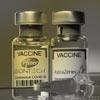Global Study Reveals Increased Blood Clots and Heart Inflammation After COVID-19 Vaccination

News Synopsis
In one of the largest assessments of its kind, involving 99 million individuals, a study on adverse reactions following COVID-19 vaccination has uncovered concerning trends. The data analysis, conducted by the Global Covid Vaccine Safety Project, found a notable rise in reported cases of Guillain Barre Syndrome, myocarditis, pericarditis, and cerebral venous sinus thrombosis (CVST) following inoculation with both mRNA and ChAdOX1 vaccines.
These findings align with previous observations by global health bodies, categorizing these occurrences as 'rare' side effects post-COVID-19 vaccination.
Notable Adverse Reactions
Increased Instances of Serious Conditions
Instances of Guillain Barre Syndrome, myocarditis, pericarditis, and CVST were observed to be at least 1.5 times more than expected after vaccination. These conditions, though rare, can have serious implications, ranging from muscular damage to potentially fatal outcomes.
Key Findings of Global Covid Vaccine Safety Project:
-
The study, conducted by the Global Covid Vaccine Safety Project, examined electronic healthcare data from Argentina, Australia, Canada, Denmark, Finland, France, New Zealand, Scotland, and the United Kingdom.
-
OE ratios (observed vs. expected) exceeding 1.5, indicating a 50% or higher increase in reported cases, were observed for:
-
Guillain-Barre syndrome and CVST after the first dose of the ChAdOx1 vaccine (AstraZeneca/Covishield)
-
Acute disseminated encephalomyelitis after the first dose of the mRNA-1273 vaccine (Moderna)
-
Myocarditis and pericarditis after both mRNA and ChAdOx1 vaccines
-
-
The study excludes data from India, where a majority of the population received ChAdOx1 (Covishield) vaccines.
India's Scenario: Limited Data, Need for Caution
-
As of December 6, 2022, India reported 92,003 adverse events following immunization (AEFI) cases, representing 0.009% of vaccinated individuals.
-
Although lower than reported rates in some countries, experts caution against direct comparisons due to varying reporting systems and potential physiological differences.
-
Further studies focusing on the Indian population are crucial to understand the local risk profile and ensure optimal vaccination strategies.
The Global Covid Vaccine Safety Project's Assessment
Comprehensive Data Compilation
The Global Covid Vaccine Safety Project compiled electronic healthcare data on adverse events related to COVID-19 vaccines from diverse locations, including Argentina, Australia, Canada, Denmark, Finland, France, New Zealand, and Scotland. The expansive analysis aimed to assess the safety profile of the vaccines on a global scale.
OE Ratios - Identifying Potential Safety Signals
The study utilized Observed versus Expected (OE) ratios to identify potential safety signals. Ratios exceeding 1.5, indicating a 50% increase in adverse reactions compared to expectations, were flagged for thorough investigation. Notable ratios were observed for Guillain-Barré syndrome, CVST, and acute disseminated encephalomyelitis following specific vaccine doses.
Adverse Events Following Immunisation (AEFI) in India
Reporting Statistics in India
As of December 6, 2022, India reported a total of 92,003 Adverse Events Following Immunisation (AEFI), representing 0.009% of vaccinated individuals. A comparative analysis highlighted lower AEFI percentages in India (0.009%) compared to the United States (0.2%) and the U.K. (0.7%).
Influences on Reporting System Strength
The study underscores that reporting system strength significantly influences AEFI percentages, with variations among countries. Factors such as reporting systems and physiological considerations contribute to diverse baseline rates, emphasizing the need for context-aware interpretation.
Call for Further Investigation
Study's Conclusion and Future Steps
While confirming previously identified rare safety signals, the study calls for further investigation to confirm associations and assess clinical significance. The Global Covid Vaccine Safety Project emphasizes the need for ongoing scrutiny to enhance vaccine safety understanding.
Meta Description: A global study finds increased risk of certain rare side effects after COVID-19 vaccination, but excludes data from India. While Indian AEFI rates are currently low, experts emphasize the need for further research specific to the local population and continuous monitoring for optimal vaccine safety.
You May Like









